
It was a few years in the making, but Second Sight Films recently sent their 4K and Blu-ray release of the 1986 classic The Hitcher out into the world, and you can pick up a copy of the 4K release at THIS LINK. To celebrate this release, The Guardian got in contact with The Hitcher‘s director Robert Harmon and the film’s star C. Thomas Howell – and found that they both had some interesting things to say about Rutger Hauer’s contribution to the film and his approach to playing the homicidal John Ryder.
Directed by Harmon from a screenplay by Eric Red, The Hitcher has the following synopsis: While transporting a car from Chicago to San Diego, Jim Halsey picks up a hitchhiker named John Ryder, who claims to be a serial killer. After a daring escape, Jim hopes to never see Ryder again. But when he witnesses the hitchhiker murdering an entire family, Jim pursues Ryder with the help of truck-stop waitress Nash, pitting the rivals against each other in a deadly series of car chases and brutal murders.
The film stars Howell, Jennifer Jason Leigh, and Jeffrey DeMunn, with the late, great Rutger Hauer delivering one of his best performances as the title character.
Harmon told The Guardian, “John Ryder, the film’s hitchhiking serial killer, was originally described by Eric Red as having a damaged larynx, meaning he spoke using an electronic voice box. In those early drafts, he was much more monstrous – just a force of evil. I thought that approach was too simple and wanted to make him more appealing, to suggest there was a heart in there. Ryder is a deliberately ambiguous character – flesh and blood, but with room for a supernatural or mythic reading. While we were making the movie, I’d ask: ‘If Jim Halsey hadn’t been driving down that particular highway in the rain, would anyone have been standing there?’ Initially I was after Terence Stamp to play the hitcher. He turned the part down but years later I ran into him at a party and he said that, having seen the movie, he wished he’d done it. I think Terence and Rutger Hauer have qualities in common. Their eyes are like jewels – they look like they are not of this Earth. … Rutger came to me with an idea for the scene where Ryder lies on the bed in the dark next to Jennifer Jason Leigh as Nash and she assumes he’s Jim. He said: ‘I’d like to read poetry to her.’ I thought: ‘How can that possibly work? She’ll know it’s the wrong voice.’ But I was a very green director and remembered Rutger’s beautiful ‘tears in rain’ scene from Blade Runner. When we rehearsed the scene, Rutger recited his own godawful poetry and I thought: ‘This is the end of my career. I’m dead.’ He finished, came over and said: ‘It doesn’t really work, does it?’ ‘You know what?’ I said, ‘I kind of think you’re right.’ I felt like the luckiest man in the universe.“
Harmon went on to say, “I’ve often seen The Hitcher described as a horror movie, but that’s not a genre I’m interested in. The original script was much more violent and had moments I thought went too far. For example, when Jim finds a severed finger in his burger and fries, the script originally called for an eyeball and a note from Ryder saying: ‘I’ve got my eye on you.’ Still, despite the fight put up by HBO all the way through filming and even into post, there was never any question we weren’t going to kill the girl. So many people have said to me: ‘Oh my god, I had nightmares over that scene where Jennifer was ripped in half. I can’t believe you shot that!’ Well, we didn’t. You see her tied between two trucks and Ryder stepping on the gas and the tires spinning – but then the scene fades out. The movie encouraged audiences to use their imagination.“
Reminiscing about his co-star, Howell told The Guardian, “Rutger seemed to terrify everyone on the production and was pretty much left alone. I think he enjoyed the power he had over people. About three weeks in, he said: ‘I think we should have lunch together.’ I went to his trailer and we sat in dead silence as he chain-smoked filterless Camel cigarettes. After an eternity, I mustered up some courage and in my squeaky teenage voice said: ‘Rutger, what’s your secret to playing bad guys?’ He took a long drag of his cigarette, leaned into my face, slowly exhaled and whispered: ‘I don’t play bad guys.’ I just gathered up my things, thanked him for lunch and backed out of the trailer. That phrase rattled around in my head for years, until I had enough life experience to understand the importance of injecting humanity into villainous roles. There are moments in The Hitcher where Ryder looks at Jim with utter empathy. He expresses fear, too, the full body of emotions. I didn’t question any of Rutger’s improvisations – whether he was scooping a tear off my cheek with a knife, adding a little quartz rock to the handkerchief full of bullets he pushes across the table, or putting pennies in my eyes. The moments he added that weren’t in the script were unexpected gifts.“
To read more about what Harmon and Howell had to say about the making of The Hitcher, click over to The Guardian.
Are you a fan of The Hitcher, and will you be picking up a copy of the 4K release? Let us know by leaving a comment below – and share your thoughts on Rutger Hauer’s performance while you’re at it.
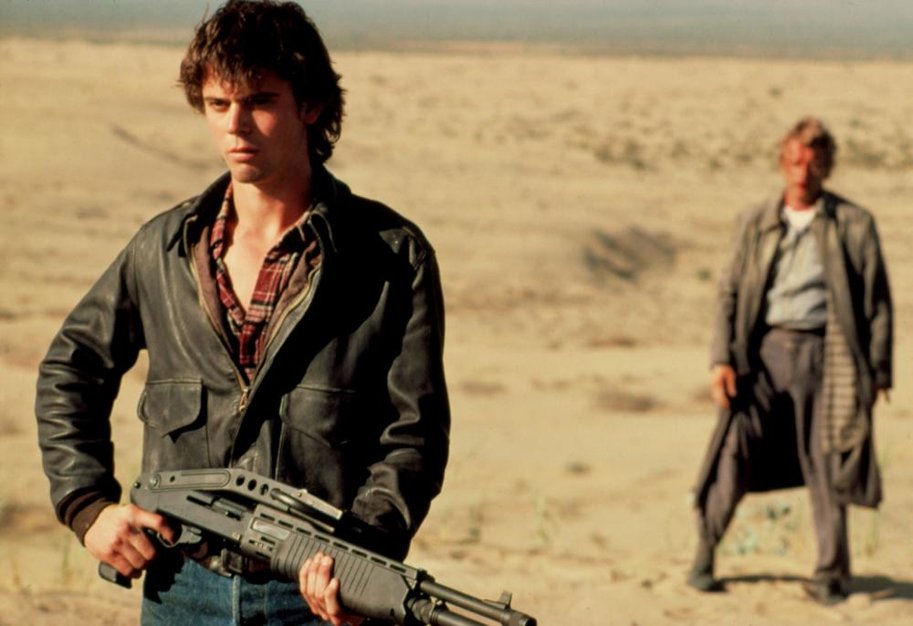







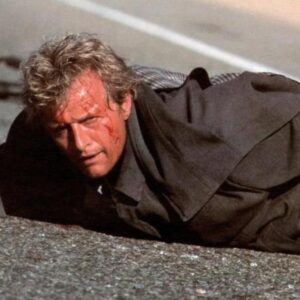



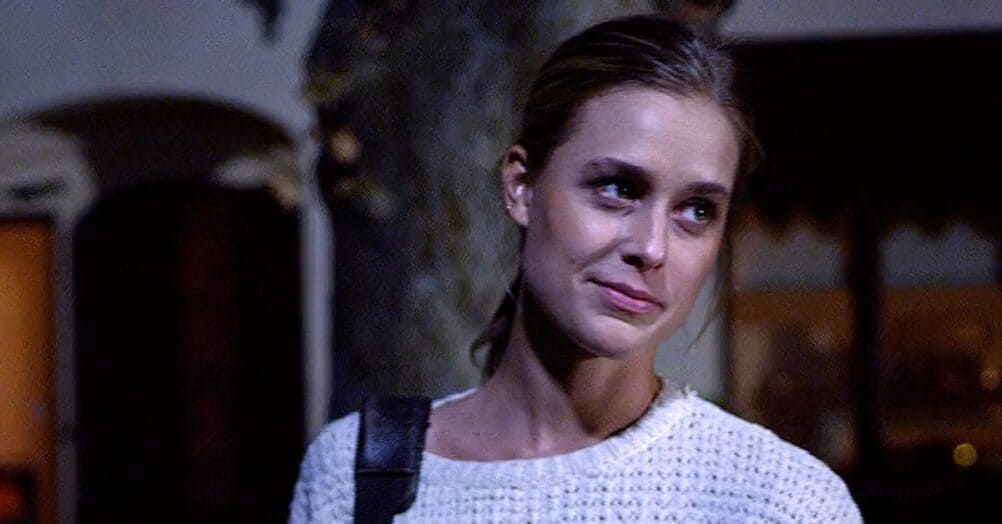



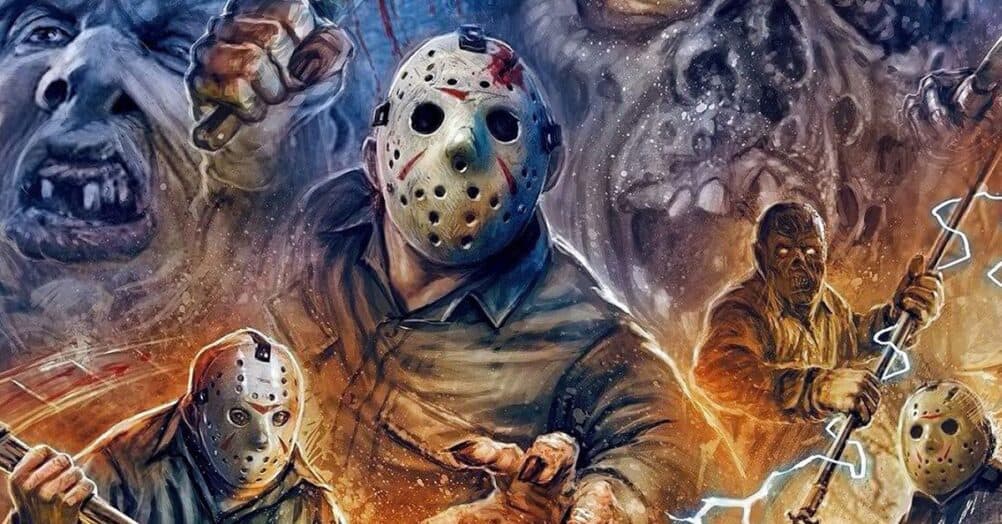
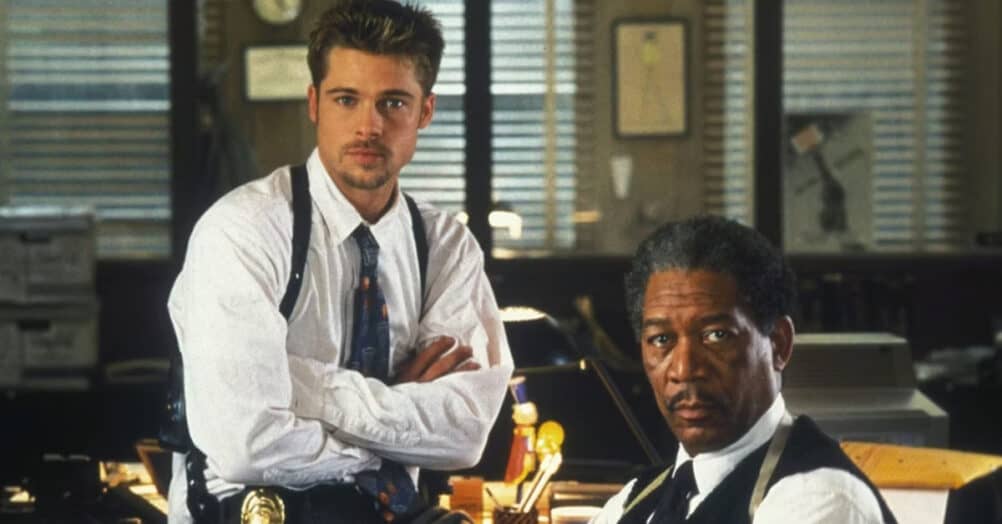

Follow the JOBLO MOVIE NETWORK
Follow us on YOUTUBE
Follow ARROW IN THE HEAD
Follow AITH on YOUTUBE